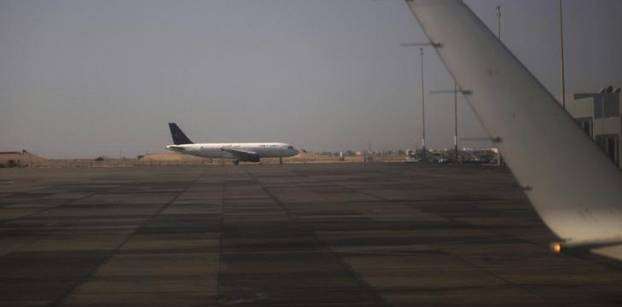Latest NEWS
- Aswat Masriya, the last word
- Roundup of Egypt's press headlines on March 15, 2017
- Roundup of Egypt's press headlines on March 14, 2017
- Former Egyptian President Hosni Mubarak to be released: lawyer
- Roundup of Egypt's press headlines on March 13, 2017
- Egypt's capital set to grow by half a million in 2017
- Egypt's wheat reserves to double with start of harvest -supply min
- Roundup of Egypt's press headlines on March 12, 2017
Travel restrictions surge under Sisi – report
For an Egyptian planning to travel, the completion of necessary paperwork is no guarantee that leaving the country would be really possible. In the past five years, numerous activists in the public sphere in general as well as citizens convicted in court cases were stopped at the airport and barred from leaving Egypt.

Daftar Ahwal, an online initiative that aims to build a database about public issues in the political and social spheres in Egypt, documented 185 cases in which Egyptians authorities prevented individuals from traveling outside Egypt in the period between Feb. 11, 2011 and Feb. 20, 2016.
In a report published in February, Daftar Ahwal said 121 individualsinvolved in political, rights or religious activities were barred from traveling.
The report compiled all cases where Egyptian citizens or foreigners were either prevented from leaving or entering the country in the past five years. The total number of such cases is 554, of which 218 cases took place during the rule of the incumbent president, Abdel Fattah al-Sisi, who took office on Jun. 8, 2014. The 218 cases include 117 in which individuals were not allowed to leave the country.
Sisi became president after he won a sweeping majority in the 2014 presidential election. He was the country’s defence minister in July 2013 when then-President Mohamed Mursi of the Muslim Brotherhood was military ousted following mass protests against his rule.
Daftar Ahwal’s report documents four travel ban cases during Mursi’s tenure, which lasted for one year only.
Mursi was the first president to rule the country after the 2011 Uprising that toppled then-President Hosni Mubarak after being in power for 30 years.
The report also documented six cases in which individuals were not allowed to leave the country under the Supreme Council of the Armed Forces, the military council that ruled in the interim period that followed Mubrak's removal.
Qatar topped the list of countries to which Egyptians were barred from traveling. Jordan comes in second place, then Malaysia, Turkey and Saudi Arabia.
Lawyer and human rights activist Negal al-Borai told Aswat Masriya that all travel ban decisions should be issued from the public prosecutor’s office, while airport authorities only execute orders.
He said that the interior ministry is not involved in issuing travel ban decisions. “The attack on the security apparatus, in this regard, is unfair because such decisions are issued by the judiciary,” he added.
Borai said the Egyptian constitution guarantees freedom of movement, but the procedures on the ground can still be manipulated to create wide travel restrictions. A complaint filed to the public prosecutor against any person may result in the issuance of a travel ban decision for this person without prior investigation.
Article (208) of Egypt’s criminal procedures code stipulates that a public prosecutor or judge may order a travel ban on defendants in cases related to charges punishable by at least one year imprisonment.
But the U.S.-based watchdog Human Rights Watch underscored the interior ministry’s role in a statement issued in Nov. 2015. “Based on news reports and accounts from activists … officers of the Interior Ministry’s Passport and Immigration Authority at Cairo International Airport have wide authority to require any citizen to obtain a security clearance to leave the country.”
A security official at the interior ministry's passport and immigration said banned citizens have the right to file appeals to the public prosecutor demanding the lifting of travel bans if they were proven free of charges.











